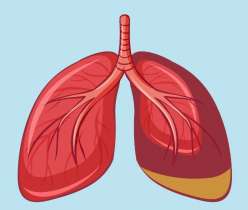Asthma triggers can worsen asthma symptoms such as wheezing, coughing, chest tightness, chest pain, difficulty breathing, and ultimately leads to asthma attacks. Currently, there is no cure for asthma, but obviously, there are certain steps that one can be taken to prevent the attacks.
Asthma occurs when the airways in lungs become inflamed and the passage blocked by mucus, which results in breathing problems. A wheezing sound produces due to tightness in the chest and the lungs. The 5 common asthma symptoms including coughing, wheezing, chest tightness, shortness of breath, and chest pain can be well controlled. If you are diagnosed with asthma, speak to your doctor on the lifestyle changes you can make to keep asthma episodes at bay. Alongside, buy asthma medication to control asthma symptoms. Buy best asthma products online from reliablerxpharmacy.com. Here are 5 ways on how to keep your asthma symptoms under control and prevent the attacks.
Identify your triggers
The first most steps you need to take to prevent asthma attacks is to recognize what causes it. Certain triggers are responsible for causing asthma symptoms. Like coughing, wheezing, chest tightness, and breathing problems, so it is necessary to identify the triggers. This way you would be able to know what you need to do to prevent an asthma attack. If you don’t know the cause behind your asthma symptoms, start tracking your symptoms in a diary. Monitor the condition for several weeks and be sure to include all the environmental and emotional factors associated with your asthma. When you get an asthma attack, check your diary to know which factors or a combination of factors might have contributed it. Some asthma triggers are not always obvious. Once you are aware of what is triggering your asthma, you will be able to learn ways to ignore them and prevent an asthma attack. The commonly reported asthma triggers include smoke, the flu virus, allergies, and pollution.
Make an action plan to manage Asthma
Creating an asthma plan with your health care specialist can well support your asthma treatment. The plan should include important information such as how to handle asthma attacks, your medications, and how to manage asthma symptoms in the long run. An action plan will help you to monitor the severity of your symptoms. Asthma is a condition that requires regular monitoring and a continuous treat to keep the symptoms at bay. A good treatment plan can help control your condition and improve your overall quality of life.
Develop an allergy-proof environment
In the case of allergy-induced asthma, it is important to minimize the exposure to substances you are allergic to. In such cases, exposure to allergens can temporarily increase the inflammation of the bronchial tubes in asthmatic patient, making him/her prone to an asthma attack. The best way to reduce allergen exposure is to completely avoid them or to create an allergy-proof environment. Have a look at these ways to make an allergy-proof environment:
- Wash your bed sheets and pillow covers regularly in hot water to get rid of dust mites.
- Installation of an air purifier in the bedroom can reduce the presence of dust mites.
- Use a vacuum cleaner to clean floorings and carpets at least twice a week to avoid the accumulation of dust.
Also Read: Living with Asthma Is Easier With Knowledge
Avoid Smoking
Smoke can be dangerous for asthma patients. Inhaling smoke can trigger an asthma attack and block the passage in your airways. Even second smoke can trigger asthma symptoms like coughing wheezing. Therefore it is wise to avoid all the sources of smoke including, tobacco, candles, fires, incense, wherever it is possible. Avoid smoking in your home and as well as the car. Prefer not visiting smoking zone areas for example, at the coffee shop.
Get timely vaccinated for flu
It is necessary to get a flu shot every year to get the protection against the flu virus as this can make your asthma symptoms much worse for days to weeks. Asthmatics are more likely to have complications associated with flu including pneumonia for which they are more likely to be hospitalized. Adhering to the vaccination regime can help prevent flu and associated chest infections that can trigger asthma.
Exercise Daily Physical activity plays a crucial role in maintaining overall health including asthma. Maintaining a healthy lifestyle includes exercises and other physical activities. People having asthma can try swimming as it is well tolerated by many people with asthma. This is because swimming is usually performed while breathing warm and moist air. Swimming is an excellent way of maintaining physical fitness.



